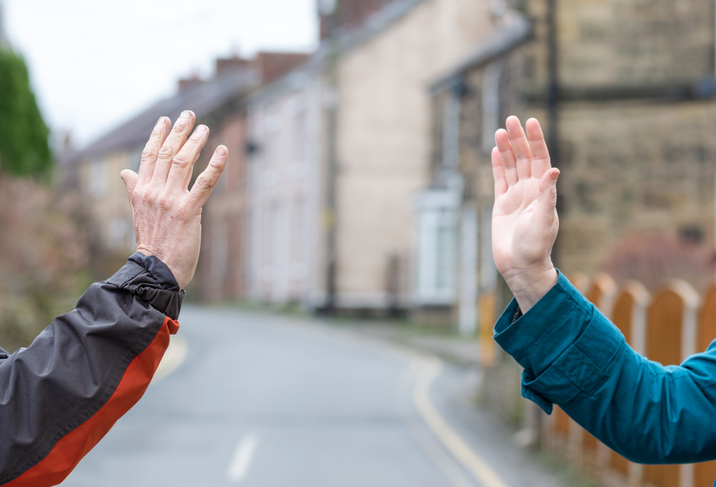Opinion
The need to touch
Are we hugging?
In Short
The pandemic has forced us to re-evaluate who we are and who we wish to be
As the world opens and I see friends in person for the first time in over a year, I start every conversation this way. I am profoundly aware of the need to touch, and of the parallel need to feel safe. I’m double vaccinated, as are most of the people in my life, but the question of touch is one I ask over and over again.
Touch is complicated. We know that children and women are touched whether we want it or not. A hand on my back, a controlling grasp of my arm, a pinch of a cheek – all these contacts are initiated by the toucher, often without consent or consultation. Touch can feel like comfort and support or touch can feel like aggression and control. Touch can emphasize a point and touch can express disrespect or intolerance. We rarely talk about touch, but we interpret its meaning all the time. Quickly, silently, and not always accurately.


iStock
I think we need intentional scripts about touch. Are we hugging? Could be yes; could be not yet; could be no. We need to teach ourselves and our kids that we have rights over our bodies, that we can decide and redecide what kinds of contact we want. We have the right to assert control.
Touch is only one of the issues we face as we reemerge. The person I was when lockdown began has changed, and the people I encounter don’t know that. Am I mourning for a loved one? Did I lose my job, my marriage? Have I realized that I actually loved the social isolation and narrowed obligation of COVID? Did I learn things about myself that I want to hold onto – that I am a good teacher, who my real friends are, what my values are? Did I develop behaviors I want to shed, like diminished emphasis on personal cleanliness?
There are decisions to be made as we emerge from these cocoons. We know that decisions can be overwhelming. Whether they are choices about hugging or travel, each one of our upcoming decisions is fraught with anxiety. In many ways, our anxiety has kept us alive during the pandemic. We won’t give it up easily.
Researchers looking at how people grow after trauma find there are six areas of Post-Traumatic Growth, also known as PTG. None of us does all of them. And we never finish – growth is a continuous process. They are:
- Awareness of personal strengths
- Reprioritization of values
- Deeper and more meaningful relationships
- Appreciation of life
- Creativity
- Spiritual change
In my teaching over the last few weeks, I’ve been asking people to consider how we might use the content we teach to build strengths. Whether it’s Torah or Modern History or Mussar that you’re teaching, how might you slant your lessons so that they support the building of personal strength? How might you take that same content and support creativity, or appreciation of life? Our content can be a pathway to Post-Traumatic Growth, to building our next normal.
How do we as Jewish leaders and institutions support any of these forms of PTG? With intentional planning. What strengths are we trying to build? A simple “return” to what we have always done may feel easy and reassuring, but it may not allow space for people to realize how they’ve changed. I hope we can find ways to tell our stories and celebrate our learnings.
The pandemic has forced us to re-evaluate who we are and who we wish to be. Whether it’s as mundane as giving up makeup or as profound as leaving bad marriages, I pray that the lessons of COVID stay with us.
What did you learn this last 15 months? What are you still learning? How can we scaffold the learning as we reemerge, for ourselves and for those we care for? Our emergence requires intentionality and thought. While we are all thinking about health protocols, I hope we will also think about mental health protocols. All the ways we touch each other matter, especially now.
Betsy S. Stone, Ph.D., is a retired psychologist who currently teaches as an adjunct lecturer at HUC-JIR. Her classes include Human Development for Educators, The Spiritual Life-Cycle, Adolescent Development and Teens In and Out of Crisis. She is a regular contributor to eJewish Philanthropy.












